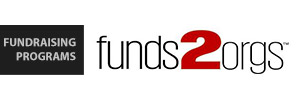
How do you manage bad press?
The first rule of public relations is to do something good and then talk about it. But what if something bad happens? PR is even more important.
It’s likely that your organization doesn’t have a dedicated Public Relations team and you might not have the budget to hire a firm. But it’s incredibly important for you to have a plan in place to deal with negative publicity.
I found a pretty great report from 2000 that surveyed several larger nonprofits, asking if they’ve got a plan in place to deal with negative press. Surprisingly, at that time, only 11.8 percent of them had gudidelines and training to handle negative publicity and only 17.6 percent had a crisis management team or spokesperson. While the numbers have surely changed since this article was written – especially in the post-9/11 era – I can’t imagine it’s changed significantly.
Why should you have a plan in place for crisis communication and bad publicity and press? And what does a good plan include? Here are a few reasons and actions (taken straight from my PR 101 class in college):
You’ll probably miss a lot of important details if you’re reactionary. Proactivity is incredibly important when it comes to a good PR strategy. If something happens that you didn’t anticipate, you’ll be so pressed to make a comment or form a response that your team might miss an important detail or make a misstep. Plan ahead.
You don’t want anyone to say the wrong thing. Make sure your staff members are trained on how to respond to requests for information. Have some canned language prepared and general guidelines for who should and should not receive information. You should technically appoint a dedicated spokesperson to speak on behalf of your organization should the media be involved. If you anticipate that the public might be involved, appoint someone else to deal with the public officials. Public officials and the media should receive different information. Be careful what you report to the media – in fact, share a constant stream of positive information about your organization with the media before negativity arises.
You don’t want people talking behind your back. One of the most proactive things you can do when preparing a crisis plan is monitoring what people are saying about you as best you can. Monitor your online presence – social media, hashtags, websites, news articles, and story comments are great places to look (and they’re pretty easy to leaf through, too). If there are government policies that are in the works that may affect your organization, watch those policies like a hawk. Know their every move.











